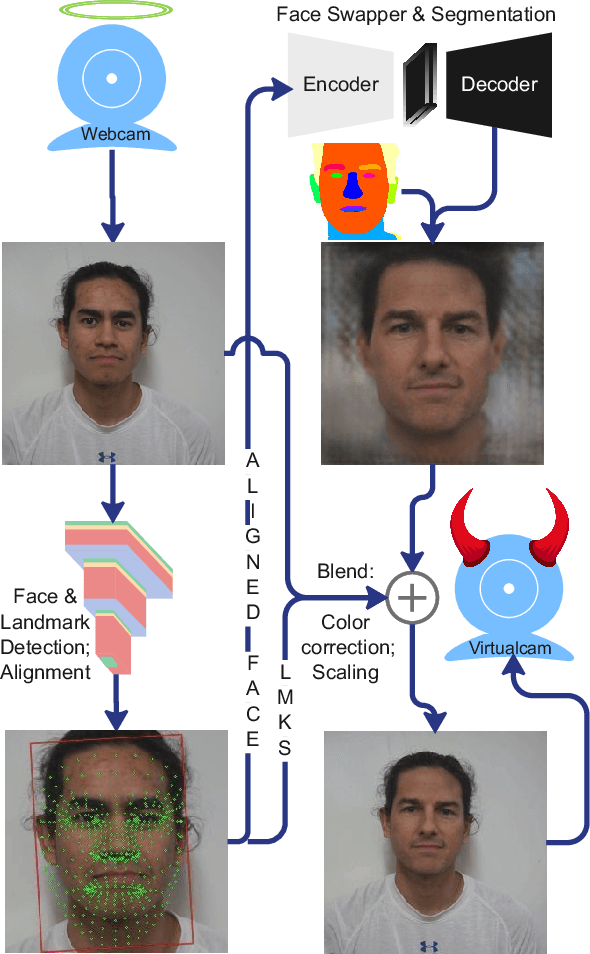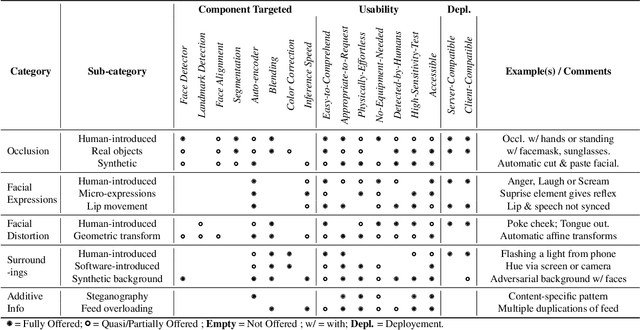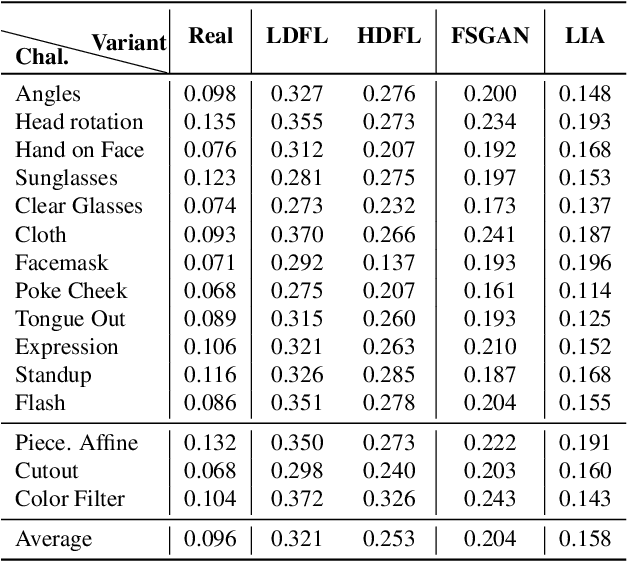Gotcha: A Challenge-Response System for Real-Time Deepfake Detection
Paper and Code
Oct 12, 2022



The integrity of online video interactions is threatened by the widespread rise of AI-enabled high-quality deepfakes that are now deployable in real-time. This paper presents Gotcha, a real-time deepfake detection system for live video interactions. The core principle underlying Gotcha is the presentation of a specially chosen cascade of both active and passive challenges to video conference participants. Active challenges include inducing changes in face occlusion, face expression, view angle, and ambiance; passive challenges include digital manipulation of the webcam feed. The challenges are designed to target vulnerabilities in the structure of modern deepfake generators and create perceptible artifacts for the human eye while inducing robust signals for ML-based automatic deepfake detectors. We present a comprehensive taxonomy of a large set of challenge tasks, which reveals a natural hierarchy among different challenges. Our system leverages this hierarchy by cascading progressively more demanding challenges to a suspected deepfake. We evaluate our system on a novel dataset of live users emulating deepfakes and show that our system provides consistent, measurable degradation of deepfake quality, showcasing its promise for robust real-time deepfake detection when deployed in the wild.
 Add to Chrome
Add to Chrome Add to Firefox
Add to Firefox Add to Edge
Add to Edge